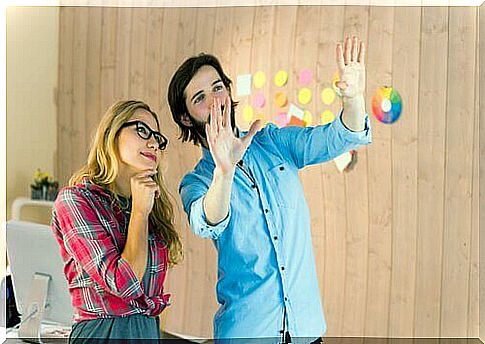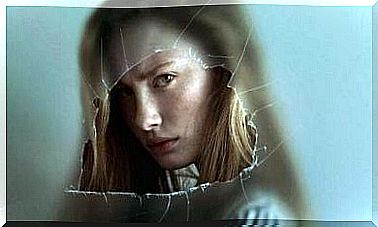Is Creativity Innate Or Learned?

When you think of creativity, the idea of a muse that inspires a “chosen one” to create amazing works of art may come to mind. However , many wonder if creativity is innate or learned. Although it manifests spontaneously in some people, others have learned through an organized process to get the most out of it. To answer the question above: Yes, everyone can learn creativity.
The term “creativity” was coined by Joy Paul Guilford over 50 years ago. According to him, creativity is the ability to do something new and valuable. This idea applies to everything a person does. Thus, anyone can be creative when it comes to solving problems or formulating a theory, among other things. So, is creativity innate or learned?

Is creativity innate or learned?
Few experts doubt that the ability to be creative is inherent in all people to a greater or lesser degree.
Many authors believe that beyond the level of departure or genetic predisposition, everyone can learn to be original, flexible and sensitive. Every human being can acquire the basic skills to be creative. Thus, creativity is sensitive to experiences and the challenges one faces, which reinforces it.
In the same way, other authors argue that all children are creative by nature. Researchers know that children undergo a stage of constant formulation of questions and divergent thinking when they are between three and five years old. This is a phase characterized by a creativity they can maintain for life under a suitably enhanced environment. Thus, these authors believe that creativity is innate. Unfortunately, many people lose this skill over the years.
Still, even though it is a complex process, a person can train themselves to be creative. In the same way, you can learn everything that can be taught away. Thus, it is fundamental to develop creative attitudes such as imagination, curiosity and criticism, in addition to self-confidence, proactivity, frustration management and perseverance.
When it comes to creativity, the following should be considered:
- It should be learned from the interests of the individual and take into account their abilities.
- Teachers must use simulation, consultation and discovery methods.
- In addition, there must be stimulation of imagination and curiosity in a basic way throughout the training.
- Teaching must encourage the integrated use of different materials, ideas, methods and tools.
- In addition, it must explore, investigate and experiment. Basically, one must find new challenges and discover needs and resources.
- It must promote self-assessment and self-criticism, with a view to determining whether the result is useful and valuable.
- It must also acquire the specific knowledge that is useful for the creative process.
- Creativity is determined by motivation and effort.
- You must acquire basic skills such as language, problem solving and goal orientation.
- You must also trust yourself and promote your ideas.
- Finally, there must be opportunities to start creative processes, balanced in freedom and structure.

What weakens creativity?
In addition to learning creativity through a variety of guidelines, keep in mind that other factors can hamper creativity.
In the same way, people’s experiences may have reinforced or learned plans where other ways of acting or expressing themselves were not valid. In this regard, you need to focus on the importance of the result and on the added value of following a creative process.
Second, extrinsic motivation is rather celebrated and reinforced today because it helps us adapt to a medium that follows narrow and stable parameters. For example, getting good grades or a pat on the back from a parent. However, you must follow new paths to foster creativity and imagination and invent new alternatives. For this to happen, it is important to find and promote your own motivation.
Finally, the need people have to identify with a group of equals leads them to imitate each other and develop similar behaviors and attitudes. To foster creativity, try to be autonomous and develop your own unique qualities and attitudes.









